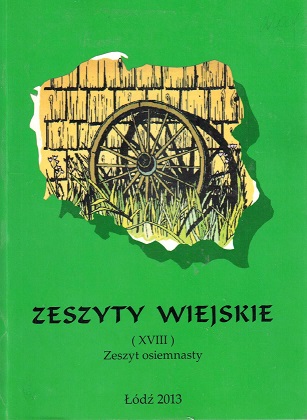Kultura ludowa i tożsamość narodowa w dziewiętnastowiecznej etnografii portugalskiej
DOI:
https://doi.org/10.18778/1506-6541.18.04Abstract
In this paper, I present sketch of the research conducted by the nineteenthcentury ethnographers in Portugal. Because this subject has never been described by the Polish scientists, I portray silhouettes the pioneers of anthropology in Portugal. Work shows the first period – it is 1870–1880 – of history of the Portuguese anthropology, called: masters period. The most significant figures of that time were: Teófilo Braga, Adolfo Coelho, Consiglieri Pedroso, Rocha Peixoto oraz Leite de Vasconselos. Following the theories made by George Stocking, the Portuguese nineteenth-century ethnography is defined as an anthropology of nation-building. What is extremely important, it was not a scientific discipline that studies conducted only on folklore and traditions, but also undertook reflections on national identity.
The Portuguese nineteenth-century ethnography focused on the peasant culture, understood as a true expression of the ontology of the people. The researchers were convinced that folk culture showed authentic identity of the Portugal, was recognized as a source of knowledge and truth. It had to explain and justify the outline of national identity. Ethnographic reflection of this period is configured as the cultural and ideological instrument confirming national identity.
At the end of my work, I present the dual approach to the matter of the peasant culture with special emphasis on rural community relations. The monographs shows very positive descriptions of peasant life and enthusiastic approach to folk culture. The Portuguese nineteenth-century researchers illustrate folk culture in the monumentality way. When decadency began in the Portugal, the scientists looked at peasant people pejoratively. The image of the rural community, which is described in the nineteenth-century books, started to be extremely derogatory, harsh and accusing. Nevertheless, how positive or negative image of peasant community is, the researchers focusing on the issue of national identity has never given up its central reference, which was a folk culture.
Downloads
Downloads
Published
How to Cite
Issue
Section
License

This work is licensed under a Creative Commons Attribution-NonCommercial-NoDerivatives 4.0 International License.











